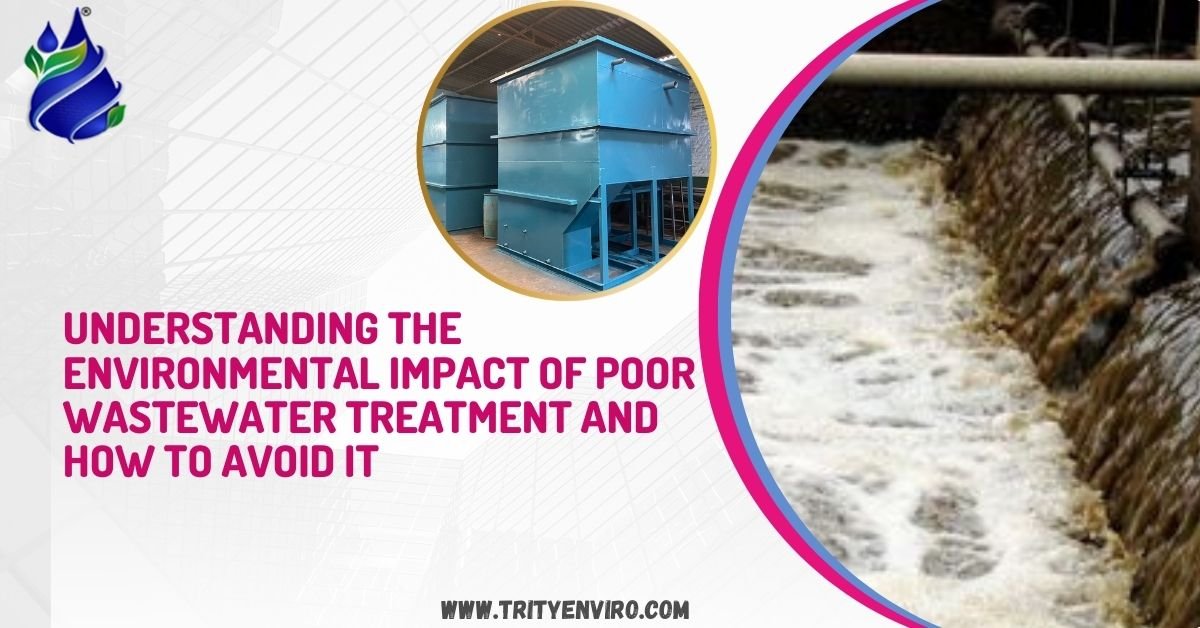
How Poor Wastewater Treatment Affects Ecosystems and Biodiversity
Contaminated natural water bodies occur due to untreated wastewater. Chemicals and nutrients break up the aquatic ecosystem. Through these excess nutrients, algal blooms form, sink oxygen levels, and kill aquatic species. Pollution from industrial waste and heavy metals enters the wildlife chain. Polluted water alters the natural environment, leading to habitat destruction. Poor treatment negatively affects biodiversity and threatens the natural balance.
A wastewater treatment plant for industries plays a crucial role in mitigating these impacts. Clean water is essential for the survival and reproduction of healthy ecosystems. Polluted water disrupts the natural food chain and the ecosystem. Toxic discharges and oxygen depletion harm fish and aquatic plants. Contaminated water also affects soil quality and herb growth. Biodiversity loss impacts ecosystem functioning and the essential services it provides. Proper treatment of wastewater contributes significantly to ecological integrity
Understanding Health Risks Linked to Improper Wastewater Disposal
Waterborne diseases can threaten human health because of untreated wastewater. Pathogens, bacteria, and viruses spread illnesses quickly. A polluted source of water increases the risk of cholera, dysentery, and other infections. However, harmful pollutants spread from contaminated seafood and crops to human beings. Bad treatment of wastewater makes antibiotic resistance more likely. Polluted water sources comprise a severe threat to communities living close by.
A reliable wastewater treatment plant in India can help address these challenges effectively. Contact with untreated water hurts people and communities. It creates breeding grounds for disease-carrying insects like mosquitoes. Poorly treated wastewater system leaks contaminate groundwater supplies. Poor sanitation in developing regions affects vulnerable populations particularly. Public health improves significantly with proper wastewater management systems. Treating the water from our wastewater protects health and reduces disease outbreaks.
Economic Consequences of Neglecting Wastewater Management
1. Inadequate wastewater treatment leads to more environmental cleanup and higher healthcare costs. Violating pollution regulations and standards comes with fines for industries. Polluted resources contaminate fishing, tourism, and agricultural productivity. Both contain expensive remediations required to restore usability.
2. Damaged ecosystems and resources severely harm local economies. However, proper treatment, supported by reliable wastewater treatment plant manufacturers in India, prevents economic losses and allows sustainable use of resources. Immediate environmental damage has significant economic consequences.
3. Polluted water bodies and strict regulations make businesses lose their profits. Communities must raise costs to obtain alternative sources for contaminated water supplies. Generally, diseases from polluted water stress public resources to cover the economic burden.
4. It’s important to manage wastewater effectively to sustain long-term economic growth and stability. Proper treatment saves investment costs over time.
Regulatory Challenges of Poor Wastewater Treatment Practices
Wastewater treatment generally fails to meet environmental laws and regulations. The government penalizes the industry or municipality for failing to comply with it. Weak enforcement lets polluters off the hook, allowing them to pollute more, which is unsustainable. Treatment systems then fall short of meeting discharge standards and harm ecosystems. There are regulatory gaps, resulting in inconsistent wastewater management practices within and across regions. Strengthening laws ensures better wastewater management and compliance.
Partnering with reliable wastewater treatment plant suppliers in India supports industries in adopting effective solutions. Clear regulations incentivize industries to embrace sustainable wastewater practices. To ensure compliance, governments must impose strict penalties. This helps industries meet regulatory standards in a competitive world. Collaboration between governments and industries strengthens wastewater management systems. Strong regulations are essential for adequately protecting the environment and ensuring sustainable development.
Role of Community Awareness in Preventing Wastewater Pollution
1. It raises the awareness of the community of poor treatment of wastewater. Responsible wastewater disposal comes from educating people. Protecting local water resources is the role of communities. Health risks of untreated wastewater are vital areas which needed awareness campaigns. It also improves the public’s participation in working to effectively reduce wastewater pollution.
2. It creates a culture of environmental responsibility and encourages sustainable practices. Workshops and educational programs inform communities about wastewater challenges. Social media campaigns raised awareness about pollution prevention techniques. Local organisations are part of collaborative initiative of promoting sustainable wastewater management.
3. Providing knowledge to people gives them better practices and long-term environmental protection. The involvement of the community bridges that gap between regulations and implementation. It is possible for communities and authorities to work together to develop effective wastewater management. Sustainable wastewater treatment helps protect environment and resources.
4. Industries need to adopt efficient water management. The treated wastewater helps conserve freshwater and to reduce the resources. Advanced treatment methods efficiently remove pollutants. Proper monitoring helps ensure that treatment systems continue to operate at their maximum and within accepted limits.
5. Public awareness campaigns promote responsible wastewater disposal practices. You start with reducing the generation of the wastewater at the source. Industries can optimize their wastewater production to minimize processes. This reduces the transportation and treatment costs.
6. Technologies such as constructed wetlands treat wastewater in an eco-friendly way. Sustainable practices ensure the use and safety of resources and lower long-term service and treatment costs. Beneficial to communities, ecosystems, responsible management is.
Adopting Advanced Technologies to Minimize Environmental Damage
Wastewater treatment is becoming more and more efficient with the development of advanced technologies, which give better environmental outcomes. Pollutants are removed through membrane filtration systems and clean water discharge taken place. Zero liquid discharge techniques totally eliminate the disposal of wastewater. Microorganisms are used effectively in biological treatment processes to degrade harmful substances. Monitoring is greatly improved, and operational errors are reduced greatly by automation.
This forces one to adopt advanced solutions to ensure environment compliance and sustainability. Complex wastewater challenges are addressed effectively by technological advancements. Systems such as reverse osmosis and ultraviolet disinfection should be funded by industries. The treatment processes are optimized with smart sensors and data analytics and problems are identified early. Energy consumption and operational costs over time are reduced by advanced technologies. It’s better for the environment and more efficient to choose innovative solutions. Modern systems ensure long term sustainability and reliability.


